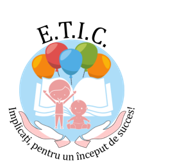OCTRA 2 - Online course catalogues and databases for transparency and recognition 2

The OCTRA 2 project aims to further explore the role of the online course catalogs of higher education institutions in project partner countries, with a focus on micro-certifications, to support higher education institutions in providing reliable information for the recognition of higher education qualifications, including micro-certifications which in the future may lead to the automatic recognition of higher education qualifications. Promoting the objectives of the European Higher Education Area (EHEA), the project will provide a long-term tool (guidelines) to reduce the fragmentation of information and to provide guidance for higher education institutions and information on higher education institutions.
EQUAL: European Qualifications - Refugees and Recognition 4

The EQUAL project will build on experiences from previous projects - Toolkit, REACT and ARENA - to further ensure the implementation of Article VII of the Lisbon Recognition Convention. The project will support NARIC Centers in establishing sustainable recognition procedures that comply with national admissions legislation and practices. Through local needs assessment, structured training and mentoring, the project will contribute to building the capacity of recognition authorities in the new countries which joined the project – Poland, Lithuania and Romania.
ARAQUA – Road to Automatic Recognition of Higher Education Access Qualifications

The aim of the ARAQUA project is to explore and map, at the level of the partner countries, the qualifications that allow access to higher education in order to develop a set of recommendations for ENIC-NARIC centers and for higher education institutions to facilitate the automatic recognition of these qualifications between states. The project also aims at mapping the qualifications that allow access to higher education to identify the minimum requirements, to promote discussions between ENIC-NARIC centers, higher education institutions and national authorities regarding the procedures and criteria for automatic recognition.
DEQAR CONNECT - Enhancing the Coverage and Connectivity of QA in the EHEA through DEQAR

Focused on two of the key commitments of the European Higher Education Area (EHEA) - supporting quality assurance and recognition within the EHEA –, the DEQAR CONNECT project consists of two actions: expanding the involvement of quality assurance agencies in higher education in the EHEA, which are currently underrepresented in the DEQAR database; improving connectivity by exploring new opportunities to use DEQAR data directly in the workflow of recognition, digital credentialing, etc.
Through this project, CNRED launched the web platform CNRED.DEQAR.link - https://cnred.deqar.link/, which provides access to the DEQAR database containing relevant information on higher education institutions and accredited study programs in over 80 countries.
EQPR - European Qualifications Passport for Refugees

“European Passport of Qualifications for Refugees” - EQPR provides information on academic training, work experience and language skills. These may be relevant if the refugee wants to get a job, do a traineeship, a qualification course or enroll in a university. This information is accepted in any European country. EQPR is a tool that facilitates the recognition of refugees' qualifications even in the absence of their full documentation, based on a transparent and credible assessment, and is used by refugees to pursue further education or to look for a job.
MICROBOL - Microcredentials linked to the Bologna key commitments

The specific objective of the project “Micro-certifications related to the key commitments of the Bologna process” (MICROBOL) is for stakeholders involved in this field to explore, within the Bologna Process, whether and how existing Bologna tools can be used and/or should be adapted to apply to micro-certifications, from the point of view of standards of quality, qualification frameworks and recognition in the European Higher Education Area.
TPG-LRC - Thematic Peer Group on the implementation of the Lisbon Recognition Convention in EHEA countries

The objective of the TPG-LRC project is to contribute to the full implementation of the Lisbon Recognition Convention in the countries of the European Higher Education Area that are part of Thematic Group B (TPG B - Thematic Group B of the Lisbon Recognition Convention), one of the three groups created to strengthen the implementation of the 3 fundamental commitments for the achievement of the Bologna Process in the period 2018-2020, 2021-2024. Following a peer support approach, the project encourages the exchange of knowledge and best practices among TPG B members, focusing on the implementation of the key principles of the Lisbon Recognition Convention.
QUATREC 2 - Comparing qualifications for reliable recognition

The aim of the project “Comparison of qualifications for fair recognition 2 (QUATREC 2)” is to facilitate the use of learning outcomes in the evaluation of diplomas issued by higher education institutions for fair recognition by employers. Another objective of the project is to develop and pilot a methodology for the use of learning outcomes, following the conclusions and recommendations of the first project.
E.T.I.C. - Inclusive and quality early education

The project is carried out between August 2019 and June 2023 and is co-financed from the European Social Fund through the Human Capital Operational Program 2014–2020, thematic objective: 10. Investments in education, training and vocational training for skills and lifelong learning, Priority Axis 6: Education and skills, Investment priority: 10i. Reducing and preventing early school leaving and promoting equal access to participation in quality early childhood education, primary education and secondary education, including through formal, non-formal and informal pathways for reintegration into education and training, SMIS Code 2014+: 128215.
The general objective is to develop an operational framework in the field of pre-school education at national level in order to facilitate access to education for children in nurseries and/or kindergartens. The specific objectives are the development and promotion of the institutional and curricular framework to ensure the increase in the participation of preschool children in early education services, respectively the provision of specialized and qualified human resources for the education and care of preschool children, by designing and running continuous training programs adapted to the needs of different categories of teaching staff involved in early childhood education and care.
Beneficiary and partners: Ministry of Education, CNRED, "Aurel Vlaicu" University of Arad, University of Pitesti, "Ștefan cel Mare" University of Suceava.
SCAN-D2 - Samples & Copies of Academic National Diplomas

The SCAN-D2 project aimed to develop a database with types of study documents (diplomas, diploma supplements, transcripts) issued by the universities of the countries participating in the project, to strengthen the mutual knowledge of different higher education systems abroad, the exchange of information and simplification of recognition procedures. Access to the database is reserved for the Recognition Centers of the 55 member states of the ENIC-NARIC Network.
ISOBAQ - Information System On pre-Bologna Academic Qualifications

“The Information System on Academic Diplomas prior to Bologna” - ISOBAQ has strengthened mutual knowledge of different higher education systems abroad, especially central and eastern European, by building a common database for the collection of typed study documents (diplomas, transcripts) issued over time by higher education institutions, before the adoption of the Bologna-type education systems. Access to the database is reserved for the Recognition Centers of the 55 member states of the ENIC-NARIC Network.
IMI PQ Net România - The Network of Competent Authorities for Professional Qualifications in Romania

The IMI PQ Net Romania project was carried out between November 2010 and February 2014 and was co-financed from the European Social Fund through the Sectoral Operational Program Human Resources Development 2007 – 2013 within priority axis 3 “Increasing adaptability of workers and enterprises”, major area of intervention 3.3 “Developing partnerships and encouraging initiatives of social partners and civil society”, ID 53132.
The project pursued the creation and implementation at national level of the European Commission's initiative regarding the development of the Internal Market Information System (IMI), by strengthening the network of social partners. The network includes both the competent Romanian authorities mentioned in Law no. 200/2004 regarding the recognition of diplomas and professional qualifications for regulated professions in Romania, with subsequent amendments and additions, as well as other potential competent authorities. The competent authorities are responsible for the professional recognition of the qualifications acquired in the member states of the European Union, of the European Economic Area and in the Swiss Confederation by the citizens of these states who wish to exercise a regulated profession in Romania.
Partners and beneficiaries: CNRED within the Ministry of Education in partnership with the National Qualifications Authority, the Institute for Social Policies and the competent authorities for regulated professions.
EUPD - University training for persons with disabilities

The project “Development and implementation of an integrated pilot program to increase access to higher education for people with disabilities” was carried out between November 2010 and December 2013 and was co-financed by the Human Resources Development Sectoral Operational Program (POSDRU) 2007-2013, Priority Axis 1 – “Education and professional training in support of economic growth and the development of knowledge-based society”, Major Area of Intervention (DMI) 1.2 – “Quality in higher education”, ID 63951.
The project, also known as “EUPD– "University Education for Persons with Disabilities", aimed at integrating persons with disabilities into the university environment, through the creation of a high-performance e-learning system, part of an integrated program development and piloting process.
Beneficiary and partners: Ministry of Education, Research, Youth and Sports, CNRED, Valahia University of Târgovişte, “Lucian Blaga” from Sibiu, the Lower Danube University from Galati, the National Union of Students from Romania.
National network of centers for the development of study programs with flexible routes and some didactic tools for the undergraduate and master's specialization, in the field of Systems Engineering

The project was carried out between July 2010 and November 2013 and was co-financed from the European Social Fund through the Sectoral Operational Program Human Resources Development 2007 – 2013, Priority axis 1: “Education and professional training in support of economic growth and development of the knowledge-based society”, major field of intervention 1.2 “Quality in higher education”, ID 63806.
The general objective of the project was to provide quality and high-performance higher education, in the fundamental field of study "Systems Engineering"-IS, in order to consolidate a structured and flexible thinking, improve learning results at the system level, acquire knowledge and skills adapted to the requirements of the labor market, by restructuring the contents of study programs in the field, and by making economic factors aware of the usefulness of supporting the insertion of these graduates into the labor market.
Partners and beneficiaries: CNRED within the Ministry of Education, Research and Innovation, Polytechnic University of Bucharest, Technical University of Cluj-Napoca, Technical University “Ghe. Asachi” from Iasi, Polytechnic University of Timișoara, SC Asti Automation SRL, Technical University of Constructions Bucharest.
Correct information - the key to the recognition of studies

The project was carried out between November 2008 and October 2011 and was co-financed from the European Social Fund, through the Sectoral Operational Program Human Resources Development 2007 – 2013, within the call for proposals for strategic projects POS HRD "University for the future", ID 2789.
The project sought to develop a unitary and transparent methodology to enable universities to recognize study periods carried out abroad at a time when academic mobility was in a growing process.
The specific objectives of the project aimed at creating a Network of Resource Centers for Information and Documentation (CRID) in every accredited university in Romania; training the staff of the Resource Centers; adapting the recognition methodology to internal and international norms and increasing its transparency; simplifying the registration procedure for continuing studies at accredited universities in Romania for Romanian, EU or third-country citizens who studied abroad (partial or full internships).
Following the activities carried out within the project, the Order of the Minister of Education, Research, Youth and Sports no. 3223/February 8, 2012 for the approval of the Methodology for the recognition of study periods conducted abroad was adopted.
Partners and beneficiaries: CNRED within the Ministry of Education, Research, Youth and Sport, together with higher education institutions in Romania.
- 1552 reads




